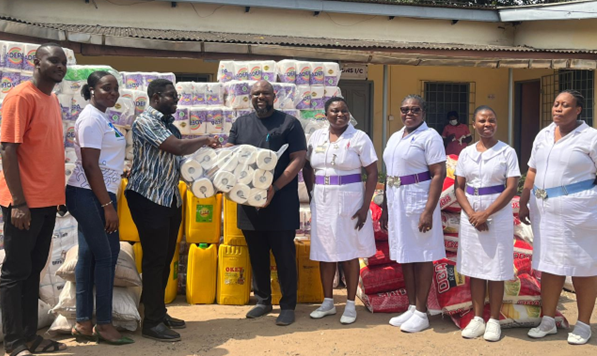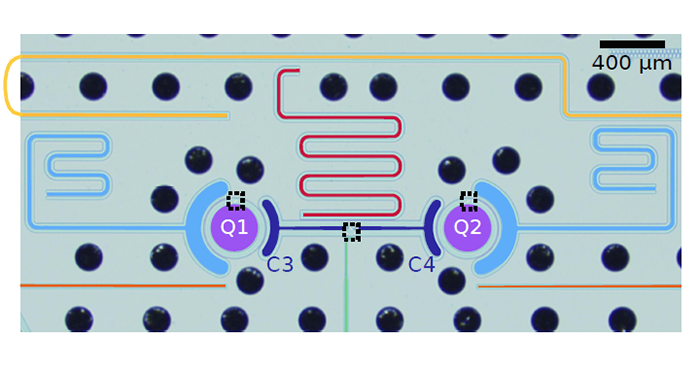The KGL Foundation under its Mental Health Index (MHI) initiative has donated assorted food items worth thousands of Cedis to Accra Psychiatric Hospital to support mental health services.
The items were made up of 36 bags of (50kg) rice, 20 bags (100kg) maize, five bags of (50kg) soybeans, bags of 100kg beans, 10 bags of 50kg sugar, 10 gallons of (25 liters) cooking oil and liters of palm oil.
Others include a total of 3,000 pieces of toilet rolls, paper towels, and packs of adult diapers.
The hospital also received Electroencephalogram, 10 laptop computers, a 6- kilowatt minimum solar power system, and five air conditioners.
Donating the items in Accra on Friday, the Programmes Manager KGL Foundation, Nii Ankonu Annorbah-Sarpei pledged that his organisation would to give a facelift to the hospital.
“This is provide a safer, more comfortable, and therapeutic environment for patients, leading to better treatment outcomes,” he said.
Nii Annorbah-Sarpei emphasised the urgent need for support at the facility, stating, “Over the years, we have recognised that this facility requires substantial support.”
He noted that the foundation’s efforts would extend beyond the donation of essential items, as it intends to invest half a million Cedis into the project.
“The KGL Foundation is committed to renovating several units within the hospital to create a more conducive environment for mental health care. A key component of this initiative is the installation of solar panels across various wards, aimed at enhancing energy efficiency and sustainability,” he stated.
Nii Annorbah-Sarpei further stated that the foundation plans to establish a dedicated space that will position the facility as a leading mental health center in Ghana.
Receiving the items, the Director of Accra Psychiatric Hospital, Dr Kwadwo Marfo Obeng, the kind gesture of KGL foundation marked a significant step towards improving mental health services and raising awareness about the importance of mental health care in Ghana.
He applauded the foundation for procuring the Electroencephalogram (EEG) for the hospital emphasising that the integration of the machine with Electroconvulsive Therapy (ECT) machines would advanced the treatment of severe mental health conditions.
“This innovative approach according to him, was particularly beneficial to the vulnerable groups, including pregnant women and new fathers grappling with postpartum depression or psychosis, who often face challenges in caring for their children, “Dr Obeng said.
He urged the foundation to develop the index into a mobile app, noting that this would cater to younger generations who prefer app-based access over traditional websites.
BY CECILIA YADA LAGBA





















Discussion about this post